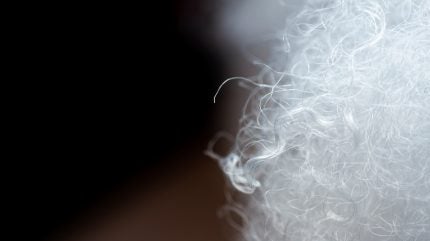
The collaboration between Fashion for Good and Altmat aims to propel the Altag Fibre Club initiative, which focuses on accelerating the market uptake of fibres derived from agricultural by-products on a large scale.
This initiative is part of the broader movement towards adopting circular materials within the industry.

Discover B2B Marketing That Performs
Combine business intelligence and editorial excellence to reach engaged professionals across 36 leading media platforms.
Through this model, brands can collectively commit to certain order volumes, sharing the financial burden and minimising risk for both pioneering companies and producers, explained Fashion for Good.
The Altag Fibre Club is set to debut at the Future Fabric Expo in London on 24-25 June 2025.
The Fibre Club is designed to facilitate the industry’s shift toward circular materials by enabling large-scale commercial use of these advanced fibres.
A group of supply chain stakeholders, including Adalberto, Bhaskar Denim, Alok, Arvind, Jindal Textiles, Positive Materials, Maharaja Shree Umaid Mills, Sambandam Spinning Mills, Sweaters India and Industries, Shahi Exports, Sutlej Textiles, and Vrijesh Natural Fibre & Fabrics (India), will incorporate AltMat’s fibres into their production routines.

US Tariffs are shifting - will you react or anticipate?
Don’t let policy changes catch you off guard. Stay proactive with real-time data and expert analysis.
By GlobalDataFollowing its inauguration at the expo, the initiative will be open for additional brands.
Fashion for Good managing director Katrin Ley said: “Advancing the Fibre Club with Altmat marks a significant step in scaling innovative materials with real commercial potential. By connecting breakthrough innovators like Altmat with committed brand partners, we’re building the infrastructure and demand needed to bring next-gen materials to market faster and more efficiently.”
This initiative builds on the model of Fashion for Good’s earlier Fibre Club project with Circ in 2024 and Canopy. It seeks to address common hurdles such as scalability, compatibility with existing processing methods, and competitive pricing that have previously impeded the adoption of material innovations.
Materials are said to be responsible for 91% of the industry’s total emissions and 30% of a product’s cost of goods sold (COGS).
Brands also face numerous obstacles when incorporating next-generation materials into their operations, including limited production capacity, higher costs, and intricate procurement logistics.
On the other hand, innovators in material development confront issues related to scaling up production, securing consistent purchase commitments, and dealing with a manufacturing infrastructure that often cannot accommodate new types of materials.
AltMat CEO and founder Shikha Shah said: “There’s no shortage of intent to adopt next-gen materials, but there is a lack of systems to actually make it happen. With the Altag Fibre Club, we are closing that gap by connecting every link in the value chain, from farm to fibre to fashion. We’re not just introducing a fibre; we’re building the foundation for a new class of materials rooted in regeneration, resilience, and real-world scalability.”





